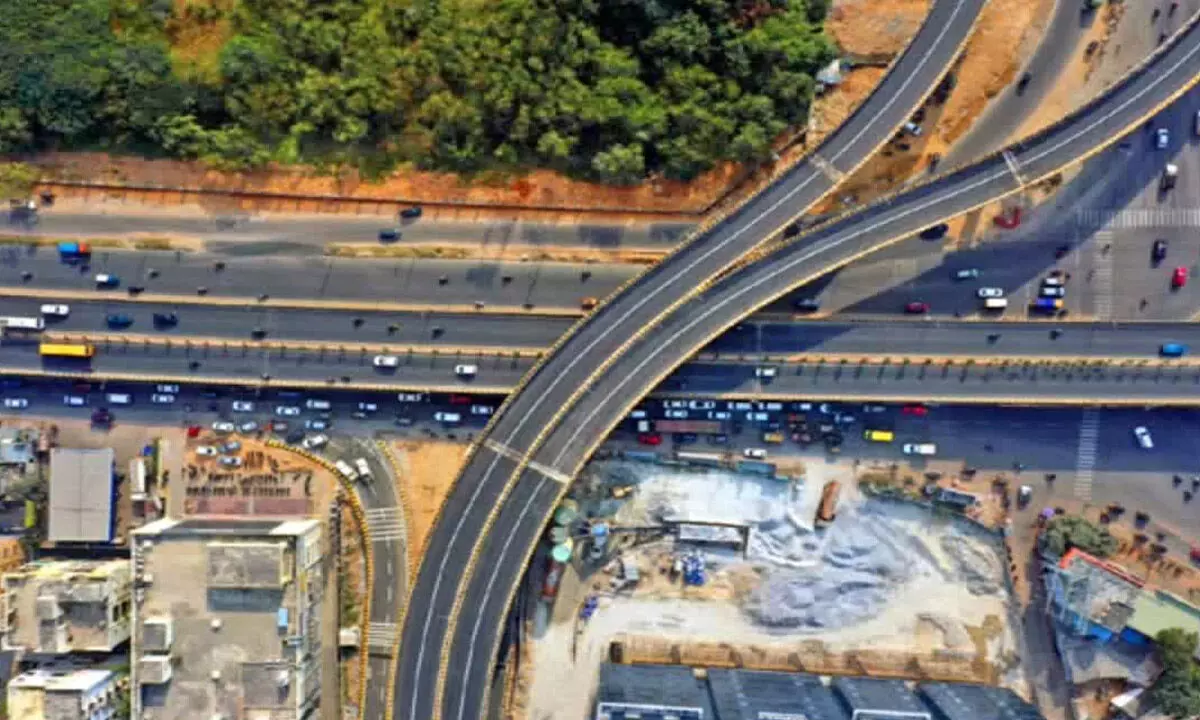Hyderabad-Srisailam Elevated Corridor: Enhancing Connectivity While Protecting the Environment

The Hyderabad-Srisailam route, winding through dense forests and narrow roads, has long been a challenging path for travellers.
The Hyderabad-Srisailam route, winding through dense forests and narrow roads, has long been a challenging path for travellers. The road, especially after dark, becomes particularly hazardous, leading to restrictions on vehicle movement after 9 p.m. due to safety concerns. In response to these issues and the increasing traffic on this busy route, authorities have proposed the construction of an elevated corridor between Hyderabad and Srisailam to ease congestion and improve safety.
The proposed elevated corridor is set to transform the connectivity between Hyderabad and Srisailam. Currently, the road is plagued by narrow sections, which are prone to accidents, and with future traffic projections, the situation is expected to worsen. To address these concerns, officials have outlined plans to widen the existing two-lane road to a four-lane highway, with an elevated structure passing through critical wildlife zones.
The project will stretch across the Amrabad Tiger Reserve and the Nallamala forest area, two ecologically sensitive regions. Given the environmental implications, the National Highway Authority of India (NHAI) and the Ministry of Surface Transport have been working closely with Telangana's Forest Department to ensure that the project meets all ecological and safety guidelines. The elevated corridor will be constructed above areas where wildlife, including tigers, are known to roam, minimizing the impact on their natural habitat.
The corridor itself will be raised about 30 feet above ground level, allowing uninterrupted traffic flow while minimising its footprint on the surrounding forest areas. The total road widening project will cover a distance of 128.6 kilometres to 191 kilometres, with a significant portion of the road running through Telangana. The stretch from Brahmanapalli, near Mannanur, to Patalaganga will see major road upgrades, with 45.42 kilometres of it featuring the elevated structure.
Land acquisition has been one of the first hurdles in this massive project. Officials estimate that around 150 hectares of land will need to be acquired, including areas within protected forest zones. Surveys have already been carried out to assess the land requirements, and the Forest Department has been closely involved in discussions to ensure minimal disruption to the environment.
In addition to road widening, the project aims to address the growing need for traffic management on the busy highway. Authorities are aware of the challenges posed by the dense forest areas, where wildlife often crosses the road, particularly at night. To mitigate this, vehicles are not allowed to travel on the road between 9PM and 6AM along a specific stretch from Mannanur Checkpost to Domalapenta Checkpost. Once the elevated corridor is completed, this restriction will be lifted, allowing 24-hour vehicle movement.
The project also takes into account the concerns of the Telangana Forest Department, which has emphasised the need for careful planning to avoid deforestation and minimise disturbances to the local wildlife. Forest officials have insisted on limiting the number of trees felled and have set stringent conditions to reduce the environmental impact. Furthermore, the design of the elevated corridor will feature minimal lighting at night, as bright lights could disrupt nocturnal animals that are active during the nighttime hours.
As the project moves forward, authorities are confident that it will not only improve safety and reduce travel time between Hyderabad and Srisailam but also serve as a model for future infrastructure development in environmentally sensitive regions. By integrating eco-friendly practices into the design and construction phases, the Hyderabad-Srisailam elevated corridor aims to balance the need for modern transportation infrastructure with the responsibility of protecting the region’s rich wildlife and natural resources.




